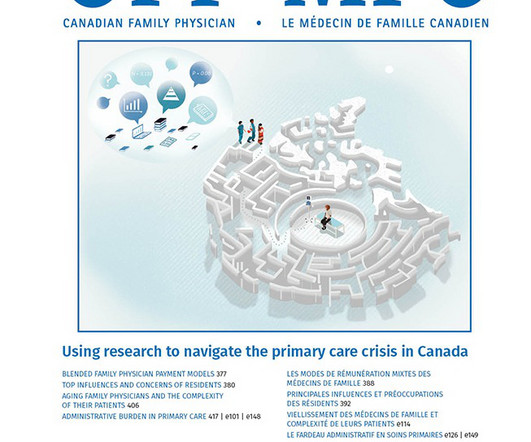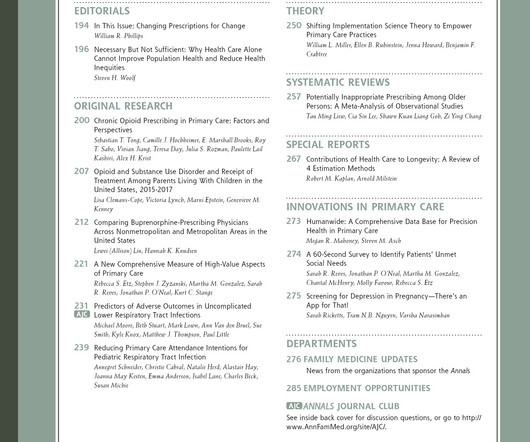Do compensation models affect family physician job satisfaction?: Scoping review
Canadian Family Physician
JUNE 16, 2025
Objective To explore how factors associated with various compensation models affect job satisfaction of family physicians. Data sources Three databases were searched (Web of Science, Embase, and MEDLINE) with 3 keywords (MeSH headings) used: family physician, payment model , and job satisfaction. Twenty-seven studies were included.












Let's personalize your content